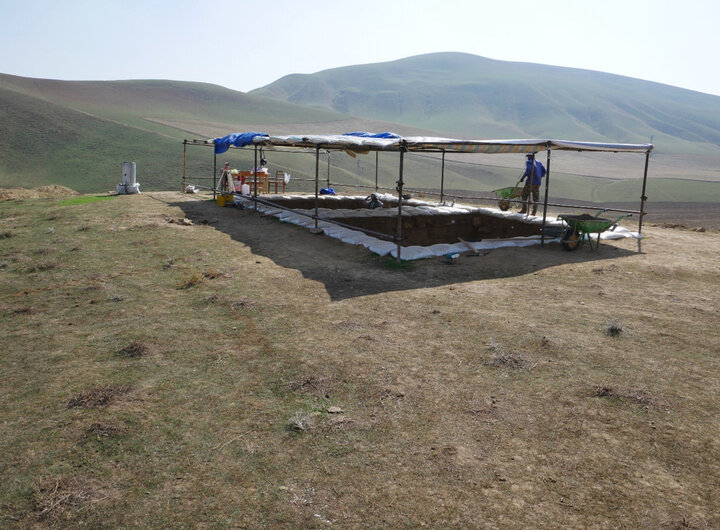Excavations underway at Ardabil’s ancient site

TEHRAN—Excavations are underway at Qeshlaq Tappaci site in Ardabil province with the goal to compile the cultural characteristics of the Neolithic era in the northwestern Iranian region, as well as to present the time period of these cultures within the framework of Iranian archaeological chronology.
According to Miras-e Arya (CHTN), Ghader Ebrahimi, head of the archaeology team, said that the east of Azarbaijan region is considered one of the unknown, anonymous, and abandoned regions in archaeology in the field of archaeological studies pertaining to the prehistoric Iran.
Despite the high environmental capacities and capabilities of this region, few studies that have been conducted which have not yet been able to properly explain the prehistoric cultural frameworks of this region, he added.
He emphasized that although the excavation in this began with excavations of French archaeologist Jean-Jacques de Morgan in the unique cemeteries of this region at the same time as the beginning of archaeological excavations in ancient Susa, a specific cultural sequence framework has not yet been developed in Iranian archaeology for this region.
The excavation of the Qeshlaq Tappaci site is an attempt to fill part of the gap in the studies of this region during the New Neolithic period, he added.
Ebrahimi stated that this site is one of the few sites belonging to the Neolithic period in Ardabil province, adding: “Qeshlaq Tappaci is a small settlement belonging to the New Neolithic period that was formed on a completely natural hill.”
Unfortunately, in recent years, due to the widening of the Bile Savar transit road, more than half of this site has been completely destroyed by road construction equipment, and today only a small part of the Neolithic settlement in the western corner of the site remains., he added.
Ardabil province, situated in northwest Iran with a population of 1.28 million and comprising 12 counties, is considered a significant destination for domestic and international tourists due to its natural, historical, religious, and economic attractions.
Ardabil, the provincial capital, has been selected as the 2023 ECO Tourism Capital by the Economic Cooperation Organization. Situated on a high, windswept plateau, Ardabil is well known for its abundant natural beauty, hospitable people, and silk and carpet trade tradition. It is also home to UNESCO-registered Sheikh Safi al-Din Khanegah and the Shrine Ensemble. It is freezing in winter and mild in summer, attracting thousands every year.
KD
Leave a Comment